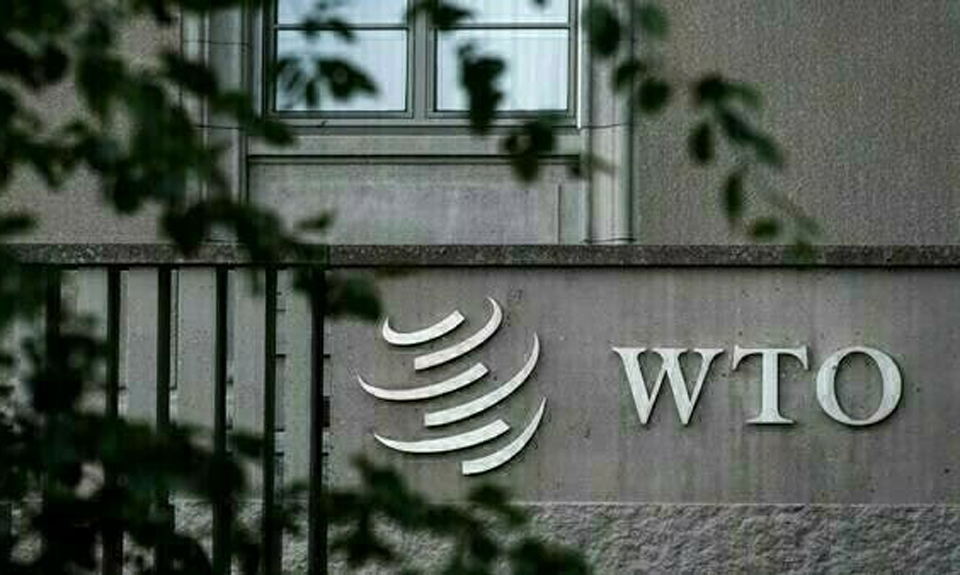
GENEVA, June 22, 2022 (BSS/AFP) - The World Trade Organization may feel this week like it has risen from its slumber after striking breakthrough agreements, but the global trade body remains far from firing on all cylinders.
"We succeeded, and we are determined to continue," WTO chief Ngozi Okonjo-Iweala boasted as she wrapped up the first ministerial conference under her leadership, having taken over the reins with gusto in March last year.
The talks at the WTO's Geneva headquarters were meant to conclude after four days on Wednesday last week, but went round the clock into early Friday as the former Nigerian finance and foreign minister pushed on for results.
Despite feeling "exhausted" after two sleepless nights, she talked up the WTO's role in addressing major global challenges.
"When I started this job, the expectations of the WTO were not very high," she said, with the organisation often branded as dysfunctional, sclerotic and unable to reach big decisions.
But now, "we've shown that the WTO can produce outcomes".
The conference concluded with deals on curbing harmful fishing subsidies, bolstering food insecurity and temporarily waiving patents on Covid-19 vaccines.
Reaching these agreements at the WTO -- where consensus is needed among all 164 members -- has revived the organisation, which had failed to strike any significant deals for nearly a decade.
- Reform -
Time will tell whether it was beginner's luck for Okonjo-Iweala, or -- more likely -- sheer determination and an effective negotiation strategy.
Australia's WTO ambassador George Mina called the results a "welcome boost" for the WTO, while France's Foreign Trade Minister Franck Riester said there was "lots left to do".
Pascal Lamy, who ran the WTO from 2005 to 2013, told AFP that the conference was neither historic nor mediocre, but praised the fisheries deal as a "real breakthrough" after 21 years of talks, for taking the WTO into combating environmental issues.
He praised the efforts of Colombia's WTO ambassador Santiago Wills, who steered the fisheries talks, saying he had "really done remarkable diplomatic work".
EU trade commissioner Valdis Dombrovskis said that despite fruitful outcomes, the divergences between members "confirm that a deep reform of the organisation is urgently needed".
Members agreed to a rough outline on how to proceed, envisioning "reforms to improve all its functions".
But "ideas vary a lot on the priorities and the directions to follow", said Sebastien Jean, professor of industrial economics at the French National Conservatory of Arts and Crafts university.
Maria Pagan, the US WTO ambassador, said: "Everybody says we want to reform; everybody has a different conception of reform."
Lamy said the agreement to reform was "as vague as it is insignificant".
- Consensus conundrum -
While taking decisions by consensus respects national sovereignty, it is often the stumbling block in getting anything done.
Several sources involved in last week's conference accused India of threatening to block everything.
The idea of creating a smaller executive body, where each member would represent a group of countries, is often mentioned, as is the notion of votes weighted according to the relative economic strength of the members.
Lamy said there was "no other realistic possibility" than sticking with consensus, as majority voting would reduce the European Union, China and the United States to three votes.
He said it was time to give the WTO secretariat some powers to make proposals or direct the agenda, as in other international organisations.
The most plausible path for now seems to be increasingly using plurilateral negotiation formats -- getting a smaller representative group of nations together to try and find consensus.
- China and tribunal trouble -
Several wealthy nations also say China should no longer be classified as a developing country -- something nations decide for themselves.
Such countries benefit from special and differential treatment.
"The heart of the problem lies in adapting the organisation to the situation where the major emerging countries have far greater weight than 30 years ago, in particular China," said Jean.
In Beijing's case, "this means working out how to adapt the rules on fair competition" to a country with a largely centrally-controlled economy.
A further major hurdle is reviving the WTO's appeals body, which ground to a halt in December 2019.
The United States is blocking the appointment of new judges because it thinks the body overrides national sovereignty.
US President Joe Biden's administration says it is ready to relaunch the system, but without putting forward any concrete proposals.
The ministerial conference decided that the tribunal should be fully operational by 2024.